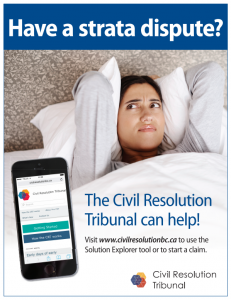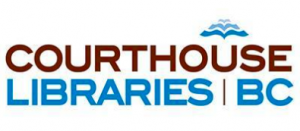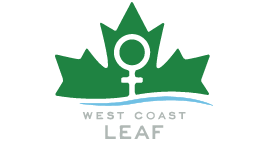Free Webinar Training: Strata Property Disputes & the Civil Resolution Tribunal

Cross-posted from the LawMatters Blog.
As of July 2016, most strata property disputes must be resolved using the new online Civil Resolution Tribunal (CRT). Join us for a free webinar for community workers, advocates and public librarians:
Register: Civil Resolution Tribunal Intake Process
Presented by CRT Chair, Shannon Salter
September 8, 12:30-1:30pm PDT
The online Civil Resolution Tribunal (CRT) is up and running to resolve strata (condominium) property disputes. This session will show you how to use the CRT’s online information and application systems, and answer some common questions about how to help your clients use the CRT. The webinar will be recorded and made available after the presentation to help users navigate this fantastic tool.
Overview
The CRT’s goal is to improve access to justice by using technology to provide accessible and affordable dispute resolution services. As a first step, the CRT’s Solution Explorer software application provides free legal information and self-help tools. You can access the Solution Explorer here. These tools help to diagnose problems and resolve them through information, videos, and template letters that are directly relevant to the dispute.
Accessible 24/7 from computers and smartphones, the Solution Explorer helps people resolve their disputes without having to go to court or use the CRT process.
If people cannot resolve a dispute themselves using these tools, they can begin a CRT claim from within the Solution Explorer. The CRT then issues a notice package, which the applicant serves on the other parties to the dispute. The claim goes through a facilitation phase, where a dispute resolution expert works with the parties to achieve an agreement between the parties. If this is not possible, an expert, independent tribunal member will make a binding decision after a hearing. This CRT decision is enforceable as a court order.
Check out our previous CRT webinar for a refresher on the Solution Explorer!



